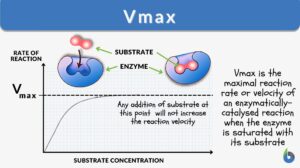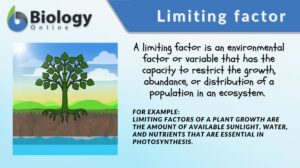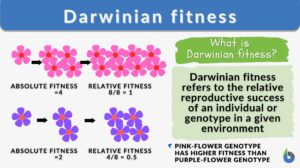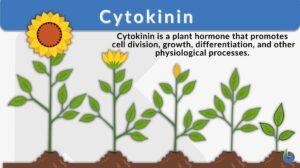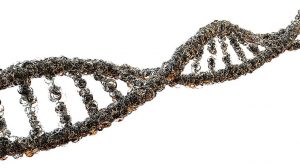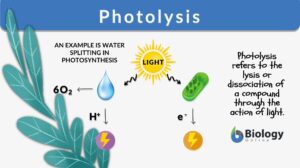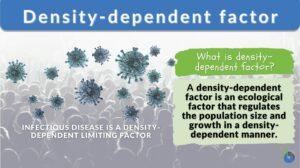Search Results for: maximum
Biotic potential
When we look at the different forms of life, we often wonder how they have continued to exist one generation after another.... Read More
Maximum temperature
maximum temperature In bacteriology, denoting a temperature above which growth will not take... Read More
Carrying capacity
Carrying Capacity Definition What is carrying capacity? In biology and environmental science, the carrying capacity of a... Read More
Residual volume
Residual volume is a term that is most often seen in lung physiology where it is defined as the amount of air remaining in... Read More
Environmental resistance
Environmental Resistance Definition Environmental resistance is such a process in which certain different elements or... Read More
Limiting factor
Limiting Factor Definition A limiting factor refers to any of the factors (variables) in an environment capable of limiting... Read More
Shelfords Law of Tolerance
Definition noun It is a law stating that a certain organism’s survival and existence depend upon the multifaceted set of... Read More
Darwinian fitness
Darwinian Fitness Definition Darwinian fitness refers to the measure of an individual organism's or genotype's reproductive... Read More
Dissolved oxygen
Definition noun The amount of free oxygen dissolved in water, expressed in mg/L, parts per million (ppm), or in percent of... Read More
Actions of Caffeine in the Brain with Special Reference to Factors That Contribute to Its Widespread Use
IV. Actions of Caffeine on Brain Functions and Behavior Having discussed the molecular and neuronal actions of caffeine,... Read More
Primary productivity
Planet Earth is home to different types of life forms ranging from microscopic bacteria to giant whales and elephants. To... Read More
Achromatic
Achromatic (Science: microscopy) Literally, colour-free. A lens or prism is said to be achromatic when corrected for two... Read More
SENI Biometric Analysis on the extinct Scincidae species: Macroscincus coctei (underlined)
Brian L. Schnirel Leeway Corucia Research Center (LCRC) Courtesy: Polyphemos (2004) Introduction: It has been... Read More
Relative fitness
Definition noun A measure of biological fitness wherein the reproductive rate (of a genotype or a phenotype) is relative to... Read More
Peristalsis
What is Peristalsis? Peristalsis is the series of involuntary, wave-like muscle movements in the cylindrical, hollow tube... Read More
Survival of the fittest
When we talk about evolutionary processes, the usage of the phrase "Survival of the fittest" has been very common in... Read More
Thermometer
thermometer (Science: physics) An instrument for measuring temperature, founded on the principle that changes of temperature... Read More
Oxyhemoglobin
Definition noun, plural: oxyhemoglobins A bright red hemoglobin carrying oxygen molecule Supplement One of the main... Read More
Sarcolemma
Sarcolemma Definition What is the sarcolemma? It is the thin, transparent, extensible plasma membrane of the muscle cell.... Read More
Genetic Mutations
Reviewed by: Mary Anne Clark, Ph.D. Genetic Mutations Genetic mutations are inherited variations in an... Read More
Muscle fatigue
Definition noun (physiology) A condition of the muscle in which its capacity to produce maximum voluntary action, or to... Read More
Antagonistic Muscle
Definition of Antagonistic Muscle What does the term “antagonistic” mean? As the name suggests, the word antagonistic... Read More
Photolysis
Photolysis Definition We define photolysis as a chemical process in which chemical compounds or molecules are split into... Read More
Threshold limit value
threshold limit value The maximum concentration of a chemical recommended by the American Conference of government... Read More
Non-Mendelian Inheritance
Reviewed by: Mary Anne Clark, Ph.D. The inheritance patterns seen in Mendel's monohybrid and dihybrid crosses... Read More
Population Regulation in an Ecosystem
Darwin focused some of this work in regards to the population size of a species, and what factors may affect them. He... Read More
Apocrine gland
The human body is a complex assemblage of many different organs, systems, glands, bones, and tissues. Weighing any one over... Read More
Regulation of Organic Metabolism, Growth and Energy Balance
Organic Metabolism Events of Absorptive and Post-absorptive States. The absorptive state is the period during which... Read More
Krebs cycle
Krebs cycle, also known as the citric acid cycle or tricarboxylic acid (TCA) cycle, is a fundamental metabolic pathway that... Read More
Circulation
Blood Blood is composed of a liquid, plasma, and blood cells such as erythrocytes (red blood cells,) leukocytes (white... Read More
Vascular Plants: Ferns and Relatives
These plants are seedless plants, but unlike the bryophytes, they do have vascular tissue (xylem and phloem). Because of the... Read More
Density dependent factor
Density-dependent factors are the limiting factors of an ecosystem that regulate population growth in a density-dependent... Read More
Aerotolerant
Aerotolerant Definition The term "aerotolerant" pertains to an organism that does not require oxygen for growth but can... Read More
